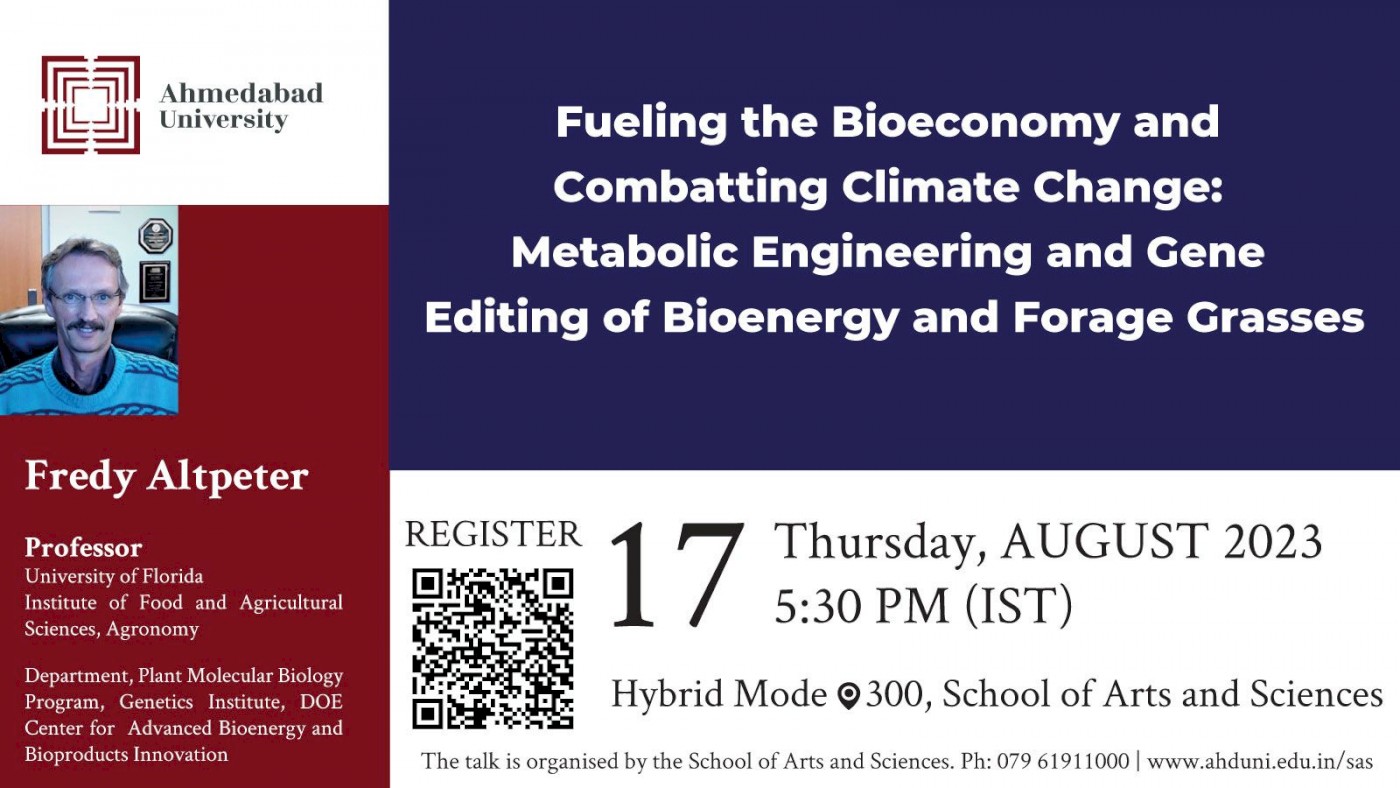Fueling the Bioeconomy and Combatting Climate Change: Metabolic Engineering and Gene Editing of Bioenergy and Forage Grasses

Metabolic engineering to divert carbon flux from sucrose to oil in bioenergy and forage crops like energycane or bahiagrass has been proposed as a strategy to boost lipid yields per acre for biodiesel production or energy density of forage grasses, respectively. InVitro assays also suggest that a 1 per cent increase in the oil content of cattle feed will reduce methane emissions by 4 to 6 per cent, which can play a significant role in combatting climate change.
However, vegetative plant tissues do not accumulate oil to a significant amount since fatty acid synthesis in these tissues serves primarily membrane construction, in addition TAGs undergo rapid turnover. Therefore, our objectives include metabolic engineering and gene editing to
- increase fatty acid synthesis,
- increase TAG synthesis from diacyl-glycerol and acyl-CoA
- optimise TAG storage
- minimise TAG hydrolysis in vegetative tissues.
In this talk, Professor Fredy Altpeter of the University of Florida will discuss his research work. Professor Altpeter’s research is focused on the genetic improvement of commercially important grasses, including sugarcane, turf, forage and biomass/bioenergy grasses.
Date: August 17, 2023
Time: 5:30 PM
Venue: 300, School of Arts and Sciences



